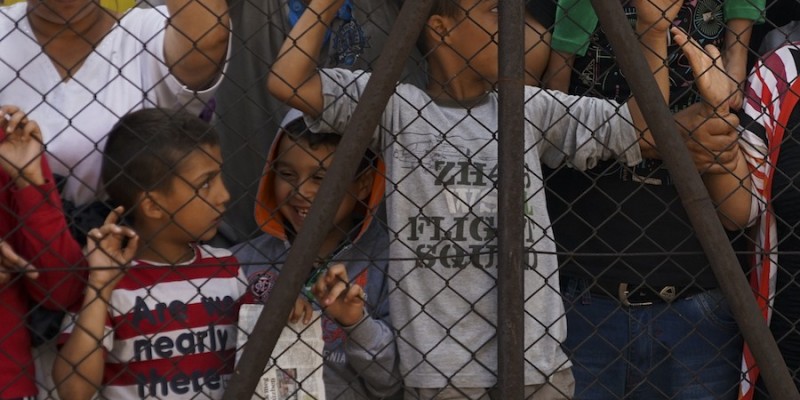Originally published on The Conversation
Immigration control is a global phenomenon. Young people seeking safety and security are subjected to the vagaries of all kinds of “solutions” at various national borders. Sometimes they are taken in and sometimes they are turned away. Sometimes, as we have found in our research, they are offered help but then deported as soon as they become legal adults. These people end up drifting between states and detained in immigration centres without understanding the system that put them there.
Each year many young people arrive in a Western country as unaccompanied children. They may be granted time-limited leave to remain and spend their teenage years there. Then they are told to leave. This can happen when a young person becomes a legal “adult” (institutionally and politically at the age of 18) and is no longer eligible for the same protections and rights that they enjoyed as children.
Once appeal rights have been exhausted, they can be forcibly returned to their countries of origin. From here, finding life unsustainable and unsafe, many re-migrate. Rejected in one region of the globe, they seek security in another, searching for the ever elusive better life.
Lost in the system
In our research we spoke to young people who spent their formative years in cities in the UK before being detained and deported back to Afghanistan. A lack of safety and prospects meant they were forced to leave Afghanistan again. Fearing re-deportation if they returned to the UK, they then embarked on journeys either to other parts of Europe or beyond.
We have no idea of the scale of this phenomenon, (though we do know something of the scale of deportations from the UK) but it’s important to acknowledge the implications of the migratory trajectories being dotted across the world by these young people.
We have met young people who left the UK for Europe in order to avoid deportation. We’ve met others who were deported to Afghanistan from the UK and have now returned to various parts of Europe where they make fresh claims for asylum based on the horrors and persecution they have been subjected to after being forcibly returned.
Some have attempted journeys to Australia and, in doing so, have unwittingly become trapped in another part of the global asylum system. Australia outsources its border control to other countries, such as Indonesia, which has set up immigration detention centres. Such centres allegedly help register, protect and find “durable solutions” for these people without them ever having to set foot on Australian soil. Never mind that Indonesia’s capacity to fulfil this role in a humanitarian way is questionable. In reality asylum applicants are held indefinitely.
A message from Indonesia
We spoke to two young people in just such a situation. They described living in overcrowded and unhygienic conditions, periods of indefinite detention and no “durable solution” anywhere in sight. They had spent their formative years in a city in the UK’s Midlands and are now so-called“global citizens of the world” with no claim to accountability on the part of the British government – even though it is their former “corporate parent”. Jamal, a 23-year-old Hazara explained how he felt forgotten:
It is a slow process and I am already waiting nine months. Nobody asks for us and no interview, nothing is happening … We have uncertain future here. I am slowly losing hope now and I am really getting stressed about everything. I don’t really know what is happening and I do not know how long it’s going to take to make a decision about me to send me somewhere. I don’t know what will happen.
Abdul, now aged 25, spent more than six years in the UK before being deported to Afghanistan, where he tried hard to survive. As his life became increasingly threatened he left again in search of safety. Like Jamal, he ended up in Indonesia where he has spent the past two years in an immigration detention centre.
Our inquiries about the situation in Indonesia to relevant international organisations confirmed that it was pretty much impossible to generalise how long it would take to process a claim for asylum and that it can be anything from a couple of months to a couple of years.
The processes of this global system are not well monitored and accountability is low, even though holding people indefinitely for the purposes of immigration control is against the UN Refugee Convention.
And what of the lack of accountability of the UK’s actions in these cases? It takes in young people as vulnerable children and then shirks any responsibility for their longer-term well-being as soon as they turn 18. If indefinite detention in a forgotten global outpost has become the “durable solution” for former unaccompanied children, then where does that leave the future of humanity?









